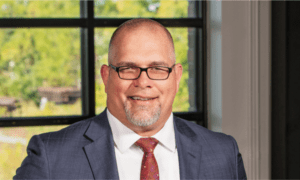Digital Marketing 101 for brokers

One revelation that struck the founder of Advisr, the online insurance broker marketplace, came during one of his firm’s educational webinars for YIPs (Young Insurance Professionals). The webinar was about the power of personal branding and almost 200 people attended. Jamison was struck that his youthful audience weren’t better versed in digital marketing.
“I was a bit surprised by that,” he said. “If you think about that market – under 35-year-olds – we’re still [having to educate them] about how digital is important, having great profile, sharing content, being a thought leader, having an opinion, having a presence, how that can help your career.”
He said if that revelation is applied across the insurance industry, it speaks to a significant opportunity for some digital marketing education.
Read next: Brokers – how to get your marketing mix right
Firstly, he said, brokers need to be more active.
“We think they need to be sharing educational content, which can be a bit tricky in an advice space, so they’ve got to be general in nature,” he said. “But if you think from the customer perspective, they’re trying to solve a problem and they will often look for that information and when they find it that then is a way to build trust with the person that’s provided it.”
Jamieson said the person who educates the customer through a piece of content that’s useful or relevant, or helps solve a problem, wins that customer’s trust and probably their business.
“That customer ends up thinking: ‘That was a great experience,’” said Jamieson. “So, who are they going to reach out to when they have another problem in that space or another challenge? They’ll naturally choose or connect with that broker.”
He said the brokers that are doing a lot in digital seem to be winning, growing, and are the thought leaders in the industry.
“The ones that are less active, they’re probably running great businesses too, but they’re just missing an opportunity,” said Jamieson.
One simple step a broker can take towards improving their digital presence is having a good profile photo.
“This is the kind of stuff we educate people on because we know that it makes a difference,” he said.
Another measure is posting relevant content, either created by themselves or content they curate from another source.
“You might be the source who just finds other people’s content and reuses it, and that’s okay. That’s useful too, and that actually builds your position as a thought leader and an expert,” said Jamieson.
Then you should comment on other brokers’ posts and engage with them.
“These are all steps that you can do, and if you do that across all the key platforms in an industry, then suddenly people go: ‘That’s the person who knows all about this stuff,’” he said.
Jamieson said it doesn’t take long before you get noticed at industry events. He said a broker who engages online consistently over a couple of years can get “huge” benefits from it.
Read next: ITC Las Vegas: Broker trends from the mega-event
On his Advisr platform, the positive reviews brokers get from customers can easily be turned into social media posts.
“That actually gives them great stuff to tell in social, because they’re saying, ‘Here’s what someone said it’s like to work with me,’” said Jamison. “We often don’t like to big note ourselves in those ways, right? But it actually becomes the most effective and powerful social content, and when they share it, it gets the most likes and interactions.”
The founder of Advisr recently attended ITC Las Vegas, a massive insurtech event where he learned about the latest trends in the insurance industry, including in the digital space.
Jamieson said big American brokerages are grouping together to work out how to take advantage of new opportunities.
“What they’ve done is create a thing called BrokerTech Ventures,” he said. “They’ve come together and created a filter that enables them to work out what businesses they can run through this filter, which then might help their core business.”
Jamieson said the brokerages that are forming these alliances are among the top 20 biggest in the US, often employing more than 1,000 brokers and with up to 20 offices across the country.
“I think that’s a very powerful proposition and very smart because it enables them to focus on their core business and have someone else doing a bit of filtering for them on what the opportunities could be that they could then plug straight in,” he said.






